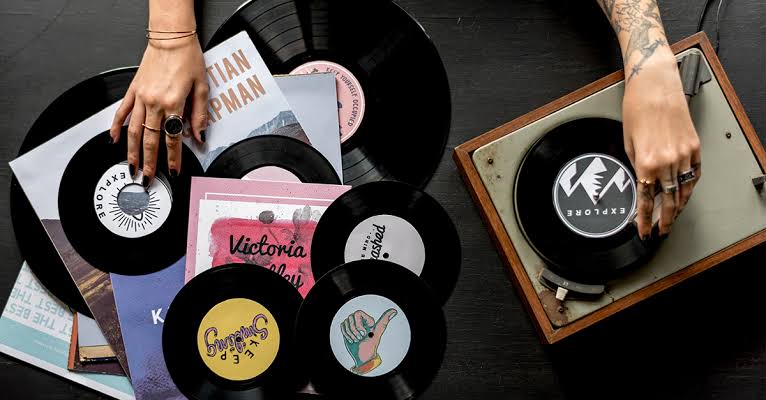PVC (polyvinyl chloride), the plastic used to make records, is not eco-friendly. With vinyl sales increasing, concerns about packaging waste have also risen.
“The bigger you are as an artist, the more influence you have to push things forward and drive progress,” says Rou Reynolds.
In a March interview with Billboard, Billie Eilish criticized how “wasteful it is” when major artists release “40 different vinyl packages,” each with a unique feature to encourage more purchases.
Reynolds agrees, saying, “It’s a valid criticism, but it will fade once BioVinyl becomes the standard. That will eliminate the grounds for criticism.”
Instead of using traditional PVC pellets, it’s now possible to make records from renewable sources like cooking oil or wood pulp.
“Traditional vinyl is an oil-based product,” Reynolds explains. “No one wants to support more fossil fuel extraction.”
Reynolds, ensuring all their records are made using BioVinyl, believes that if more artists demand eco-friendly materials for their records, it could become the industry norm.
“Independent artists can spark change, and before long, it will spread and become standard,” he says.
Karen Emanuel, CEO of Key Production Group, has been in the industry for 35 years and has seen significant advancements.
“With groups like the Vinyl Alliance, we’re looking at the entire manufacturing chain,” Emanuel says. “Big plastics companies have found ways to replace fossil fuel elements in PVC, potentially reducing the carbon footprint of vinyl by up to 90%.”
However, the greener option currently costs more. “It’s a bit more expensive to manufacture, but if enough people use it, the price will come down. We’re encouraging this shift,” Emanuel adds.
Lee Jefferies, owner of Sonic Wax Pressing, is passionate about vinyl. He notes that while vinyl prices are already high, making biodegradable vinyl could be more costly.
Despite this, a survey by Key Production found that 69% of vinyl buyers would be more likely to purchase records with a reduced environmental impact. Additionally, 77% of regular vinyl customers are willing to pay extra for eco-friendly products.
While sustainable vinyl production is crucial, it’s not the only environmental concern in the music industry. Vinyl sales worldwide generate around 156,000 tonnes of CO2 emissions annually. In comparison, Spotify’s carbon emissions were 280,000 tonnes last year, largely due to the electricity needed for data storage.
Reynolds is excited about the potential for greener vinyl. “It has the same quality and appearance. People won’t notice the difference,” he says. “We often fear that societal changes will mean losing luxuries, but this shows that’s not the case. With some thought and adaptation, we can maintain our luxuries while being eco-friendly.”
The music industry now has the opportunity to embrace these changes and make a positive environmental impact.











